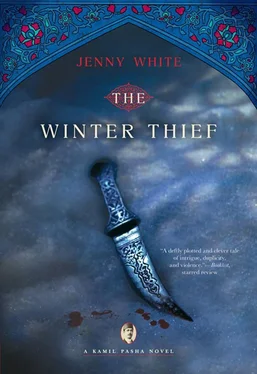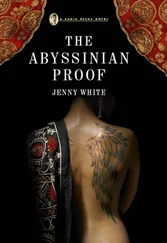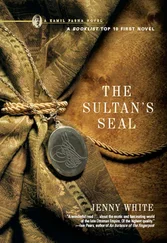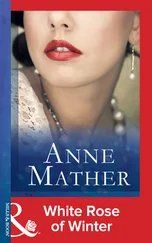Jenny White - The Winter Thief
Здесь есть возможность читать онлайн «Jenny White - The Winter Thief» весь текст электронной книги совершенно бесплатно (целиком полную версию без сокращений). В некоторых случаях можно слушать аудио, скачать через торрент в формате fb2 и присутствует краткое содержание. Жанр: Исторический детектив, на английском языке. Описание произведения, (предисловие) а так же отзывы посетителей доступны на портале библиотеки ЛибКат.
- Название:The Winter Thief
- Автор:
- Жанр:
- Год:неизвестен
- ISBN:нет данных
- Рейтинг книги:5 / 5. Голосов: 1
-
Избранное:Добавить в избранное
- Отзывы:
-
Ваша оценка:
- 100
- 1
- 2
- 3
- 4
- 5
The Winter Thief: краткое содержание, описание и аннотация
Предлагаем к чтению аннотацию, описание, краткое содержание или предисловие (зависит от того, что написал сам автор книги «The Winter Thief»). Если вы не нашли необходимую информацию о книге — напишите в комментариях, мы постараемся отыскать её.
The Winter Thief — читать онлайн бесплатно полную книгу (весь текст) целиком
Ниже представлен текст книги, разбитый по страницам. Система сохранения места последней прочитанной страницы, позволяет с удобством читать онлайн бесплатно книгу «The Winter Thief», без необходимости каждый раз заново искать на чём Вы остановились. Поставьте закладку, и сможете в любой момент перейти на страницу, на которой закончили чтение.
Интервал:
Закладка:
He thought he felt the warm winter breeze of Sevastopol on his face, the wetness on his cheeks was salty sea spray. His sister kissed his cheek softly. He caught her scent of hyacinths and thought he should stop and embrace her. He had believed his sister was dead, but he was mistaken. The realization filled him with happiness. He resisted the desire to sit down and let the snow cover him. He had to stay alive to get Vera back.
6
The windows of Kamil’s villa glowed invitingly as he rode up the drive, wrapped against the icy wind in a heavy wool coat and a kalpak of Persian lamb. His cook and housekeeper, Karanfil, made it a point to place lamps near the windows when he was out, a habit she had developed when he was a child and sentimentally kept up now that he was a grown man. He could see the elegant silhouettes of his orchids on the sills, the long sprays of flowers preening in the limelight. He would have to remind Karanfil again not to put the lamps so close to the delicate blooms. He looked forward to one of her meals and to an hour in his winter garden before returning to the problem of finding the guns.
The firearms meant that something unusual was brewing, something that could tear at the belly of the empire, already made vulnerable through massive debt to European banks and loss of territory in decades of wars and revolts. The Ottoman state had created a stable system, fairer than most, that allowed every subject to participate, regardless of faith. Ottoman laws respected people’s differences and accommodated them. None of those who broke away and founded their own nations could say the same, Kamil thought. These new states on the empire’s receding fringes were cradles of blood in which nothing grew but hatred. The streets of Istanbul were crowded with refugees from massacres committed by people newly freed from the Ottoman system of law, acting with impunity or, worse, with a nod from their national leaders. Kamil was determined to keep the center strong, serving the empire like his father and grandfather, who had both been governors.
Karanfil’s son, Yakup, who acted as Kamil’s manservant, ran from the house and took hold of the bridle before Kamil could dismount. Yakup’s ascetic, high-boned face was grim.
“I was just about to fetch you, pasha. Chief Omar sent for you. Someone blew up the Ottoman Imperial Bank. A taverna next door burned down. There are many dead.”
Kamil turned his horse and galloped back through the gate. He was surprised to receive the summons from Omar. The bank was located in the Karaköy district. Omar was the police chief of Fatih, on the other side of the Golden Horn.
Half an hour later, he slowed to maneuver through the traffic that thronged the steep, winding streets even at this late hour. Below him, he could see a black funnel of smoke twisting upward and expanding into a ghostly white cloud lit from below. He descended to Karaköy Square, where horse-drawn carts, porters, pedestrians, handcarts, and peddlers jostled one another, churning the snow into a brown paste. He spurred his horse through the crowd of onlookers until he heard Chief Omar’s familiar, booming voice, then dismounted, giving his horse to one of the constables.
Black smoke boiled into the night. There was a cacophony of screaming, shouting, and the crack of smoldering wood. The confusion was fitfully illuminated by men running back and forth with torches. A crowd of onlookers was gathered at the end of the street, barely held back by a handful of policemen. Others were at work carrying people from the wreckage. Italian nuns, their lips moving in prayer, watched from the rectory windows of Saint Peter’s Church, directly behind the bank.
Two fire brigades pumped water from their portable tanks onto the taverna. One group of firemen had relayed a long hose into the Golden Horn and was pumping water from the harbor. Despite the cold, the firemen were shirtless and their bodies gleamed with sweat in the torchlight. Kamil wet his handkerchief and held it over his mouth and nose.
He identified himself to one of the policemen, who led him to the area between the bank and the burning taverna. The bank, a three-story granite building, was still standing, the coat of arms on its façade blackened but undamaged, although the entrance had been smashed into rubble. Across the lane, the timber shell of the restaurant glowed red like a backlit stage set. Occasionally a man emerged from the wreckage or disappeared inside. Istanbul’s firemen were as famous for their physical prowess as for their almost foolhardy bravery.
Kamil saw the charred bodies lying on the pavement and stopped in horror. Some were still alive. Cracked, bloody hands grasped feebly at the air. As he watched, two firemen brought out the naked body of a woman, her face burned beyond recognition. They laid her on the ground and ran back to the fire. A woman in a black charshaf checked her pulse and then draped a sheet gently over the body. The woman’s veil had fallen away from her face and Kamil saw that she was old, her chin covered in tribal tattoos, her teeth bared with tension. Men carried the wounded to carts lined up at the narrow crossroads. Kamil took hold of one of the victims and helped carry him to a cart already crowded with other victims. Viscous fluid seeping from the wounds stuck to Kamil’s hands. He fought down nausea.
“Where are they taking them?” Kamil asked a bystander as the cart began its way uphill.
“Probably the nuns,” the man responded, his eyes held by the flames. “That’s the closest place.”
“They’re taking the wounded to a church?” Kamil wiped the palms of his hands on his trousers, but they remained sheathed with soot and blood.
“Austrians.” The man’s eyes were red, and tears streaked his face, from smoke or weeping. Kamil couldn’t tell. “They set up an infirmary during the last cholera outbreak. Right up there”-he pointed-“below the tower. They might be taking them elsewhere too. It isn’t very big.”
An empty cart pulled up. Kamil and the men worked quickly, since every touch seemed to cause the wounded great pain. Kamil forced himself to be calm. He thought of the orchids in his summer garden, his mind walking along the pebble-filled trays, listing one Latin name after another- Acineta hrubyana, Cephalanthera rubra, Orchis lactea, Orchis pinetorum -while his hands grasped slippery limbs, the victim’s lungs too burned to moan, but his eyes wild with pain.
When all the wounded had been taken away and the remaining bodies checked, wrapped in sheets, and stacked in carts, Kamil washed his hands thoroughly in a bowl of warm water the old woman brought him. Then he slumped down against the side of a building.
After a few minutes he became aware of a familiar voice and caught sight of Chief Omar arguing with a man in uniform, presumably the chief of the Karaköy police district. When he saw Kamil, Omar, black from head to foot with soot, but looking smug, came over.
“The Karaköy police will survey the neighborhood,” he announced. “They’re good at that; they know everybody. We’ll do the hard thinking, of course. Good thing I happened to be in the area.” He grinned. “I’ll share the credit with them, naturally.” His teeth were glaringly white against his dirty skin. He was a big, barrel-chested man with a thick neck, an overly loud voice, and doleful brown eyes that expressed undisguised pleasure at being in the thick of things.
Kamil stood and faced Chief Omar. “What the hell is going on?” he asked in a hoarse, cracked voice, angry at the police chief’s levity. He wondered if Omar’s experience as a soldier had hardened him to such carnage. Kamil hoped he would never think of any death as less than the highest tragedy.
“The most damnable thing,” Omar exclaimed. “There was an explosion at the bank. The fire spread across the street. Eighteen dead so far. Four of them bank guards, the rest were in the restaurant. A fast fire.” He gestured at the smoldering ruin. “Most in the taverna died. One bank guard survived. Don’t know if anyone else was inside the bank. It was closed.”
Читать дальшеИнтервал:
Закладка:
Похожие книги на «The Winter Thief»
Представляем Вашему вниманию похожие книги на «The Winter Thief» списком для выбора. Мы отобрали схожую по названию и смыслу литературу в надежде предоставить читателям больше вариантов отыскать новые, интересные, ещё непрочитанные произведения.
Обсуждение, отзывы о книге «The Winter Thief» и просто собственные мнения читателей. Оставьте ваши комментарии, напишите, что Вы думаете о произведении, его смысле или главных героях. Укажите что конкретно понравилось, а что нет, и почему Вы так считаете.












